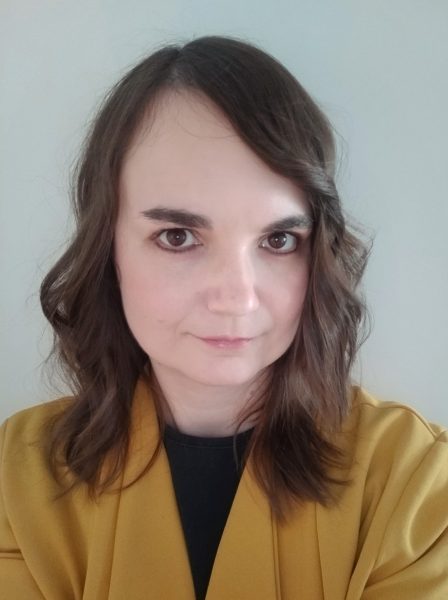RESEARCH EXCELLENCE INITIATIVE
BACK TO MOBILITY
“Back to mobility” series
consists in accounts on research expeditions
of the “Staff mobility” winners
Monika Frania, PhD
Scientific internship in Croatia and Portugal
One-year scientific internship as part of The New International Fellowship Mobility Programme for Experienced Researchers in Croatia (NEWFELPRO)
A scientific trip abroad means crossing not only state borders, but, above all, one’s own. At the beginning – especially in the case of long-term stays – such a trip seems to be a series of challenges and difficulties that must be faced. After the return, however, both the great and the slightly worse or more demanding moments are remembered with real satisfaction. It often turns out that many borders, both external and internal, are crossed. This, in turn, leads to greater openness towards new cultures, religions, customs, and a different approach to professional work and scientific research. This is some kind of transcending oneself as a human, scientist, teacher. People usually take these good examples with them – they take them home or to their workplace – and so our small inner university worlds can change under the influence of European and global trends.

When I took part in the international competition as part of The New International Fellowship Mobility Programme for Experienced Researchers in Croatia (NEWFELPRO) in 2014, I thought my chances of succeeding are rather low. The competition organized by the Ministry of Science and Education of the Government of the Republic of Croatia as part of The European Union’s Seventh Framework Programme and Marie Curie Actions was extremely popular. To my surprise, I made it! After passing three stages of the qualification process, I was invited to Croatia, being the only scientist from Poland and one of the few in the field of humanities and social sciences. I spent my one-year internship in the 2015/2016 academic year at the University of Split. It was a time of many changes in my professional life, yet this experience has also influenced many areas of my private life.
During these twelve months, I had the opportunity to work with scientists from the Institute of Pedagogy and Psychology. I conducted my own research project „The Role of Media and New Technologies in Teacher Education in the Digital Era – Selected Challenges in the Context of an Innovative Future” (MaNTinEdu), and at the same time, I was involved in the organization of conferences and many other activities of the university. Thanks to financial support, I took part in conferences in Brussels and Budapest. As part of the internship, I participated in training courses in Zagreb, as well as in the summer school of Croatian culture and language at the University of Zadar. The established scientific contacts bear fruit until today, with the prospect of undertaking joint empirical research in the next few years.
Is it worth looking for opportunities to go on research, teaching, scholarship, training, and project trips to university centres in other countries? It is definitely worth it and I encourage all of you to do so. It allows you to establish cooperation, conduct international research, exchange good practices, and above all, it allows you to open yourself up to new inspirations, cultures, and other people.
More information: www.newfelpro.hr.
Three-month research internship as part of the “Staff mobility” programme.
Does a scientific trip abroad bring benefits in the field of research only? Definitely not. The experience of a long-term stay in a foreign country at another university and cooperation with a new team of scientists is definitely something more than that. Of course, conducting research is very often the main goal of such mobility; however, when confronted with a piece of different culture and social life of the local community, people always acquire experiences that they have never expected.
In the academic year 2018/2019, I had the opportunity to participate in the “Staff mobility” programme as part of the pro-quality programmes of the Rector of the University of Silesia. It was a great honour and a valuable experience in terms of cognition, research, and development. I did the internship at the Universidade da Madeira in Portugal. Participation in scientific discussions and debates; verification and confrontation of knowledge, approaches, and research ideas; participation in scientific and popular scientific meetings organized during the stay; participation in cultural meetings or searching for elements of Polishness in Funchal – these are just some of the activities. I also had the opportunity to immerse myself in the life of the local community for three months and observe both the differences and similarities between Poles and the Portuguese from Madeira.
In my opinion, international mobility should constitute a permanent element of the scientific and didactic activity of an academic teacher. Trips to foreign institutions as well as contacts – or even ties – established there often encourage scientists from other countries to come to Poland. Let’s hope that the pandemic will not interrupt the plans of international exchanges in the future.





